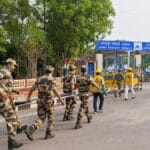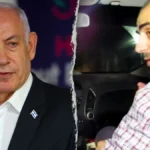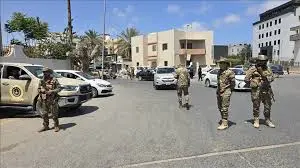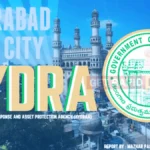Tripoli Ceasefire Announced Following Intense Militia Clashes
Government Moves to Restore Order Amid Rising Tensions as Libya Declares Ceasefire in Tripoli After Deadly Militia Clashes
On May 14, 2025, Libya’s Government of National Unity (GNU) announced a ceasefire in Tripoli following two days of intense clashes between rival militias. The violence, which erupted after the killing of prominent militia leader Abdel Ghani al-Kikli, also known as Ghaniwa, led to significant unrest in the capital. The ceasefire aims to restore stability and prevent further escalation in a city already fraught with political fragmentation and armed group rivalries. –
The recent violence in Tripoli began on May 12, 2025, when Abdel Ghani al-Kikli, commander of the Stability Support Apparatus (SSA), was killed. His death triggered retaliatory clashes between SSA forces and militias aligned with Prime Minister Abdulhamid al-Dbeibah, notably the 444 and 111 Brigades. The fighting spread rapidly across the city, affecting residential areas and key infrastructure.
Residents reported being trapped in their homes amid the violence, with some neighborhoods experiencing heavy shelling and gunfire. The clashes led to the suspension of flights at Mitiga Airport and the closure of schools and universities. The Libyan Red Crescent conducted emergency evacuations in several districts, assisting civilians caught in the crossfire.
In response to the escalating situation, the GNU’s Ministry of Defense declared a ceasefire on May 14, deploying neutral police units to maintain order and prevent further confrontations. The ministry emphasized the importance of unity and the dismantling of irregular armed groups to ensure long-term stability in the capital.
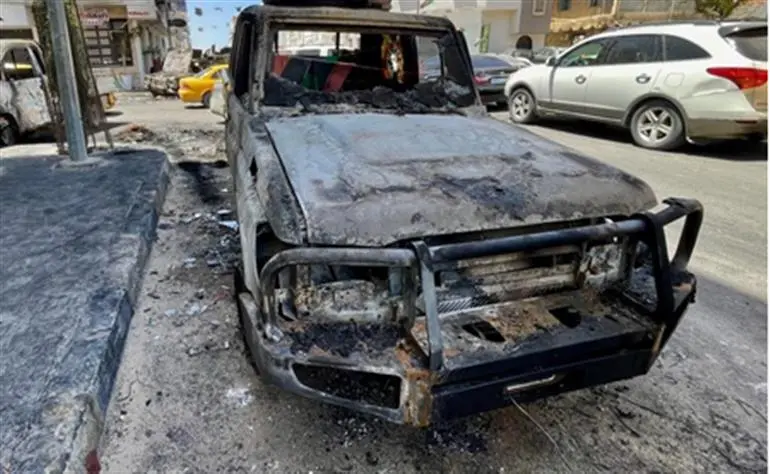
Government and Public Statements: Libya Declares Ceasefire in Tripoli
The United Nations Support Mission in Libya (UNSMIL) expressed deep concern over the violence, calling for an immediate and unconditional ceasefire. UNSMIL highlighted the risks to civilians and warned that attacks on non-combatants and civilian infrastructure could constitute war crimes under international law. The mission urged all parties to engage in dialogue and protect the rights and safety of the population.
The United Arab Emirates also voiced concern over the developments in Tripoli, urging all factions to de-escalate tensions and resolve disputes through peaceful means. The UAE’s Ministry of Foreign Affairs emphasized the need to protect civilians and uphold the unity and stability of Libya.
Conclusion: Libya Declares Ceasefire in Tripoli
The declaration of a ceasefire in Tripoli marks a critical step toward restoring peace in Libya’s capital. However, the underlying issues of political fragmentation and the presence of multiple armed groups continue to pose significant challenges. The international community’s calls for restraint and dialogue underscore the urgency of addressing these issues to prevent future outbreaks of violence and to pave the way for a stable and unified Libya.
The recent ceasefire declared in Tripoli has drawn both cautious optimism and concern from the international community. Libya has long struggled with instability since the fall of Muammar Gaddafi in 2011, with rival factions, militias, and foreign interests vying for power. Tripoli, the capital and symbolic center of governance, has frequently found itself at the heart of the violence.
According to local sources and verified media reports, the latest clashes erupted between the 444th Brigade and the Special Deterrence Force — two powerful armed groups affiliated with the Government of National Unity (GNU). The fighting led to widespread fear among civilians, damage to infrastructure, and temporary closures of schools, businesses, and public services.
The Interior Ministry confirmed that negotiations were facilitated by local elders and high-ranking security officials to prevent further escalation. As a result, both groups agreed to pull back and re-establish their previous positions.
In response, the United Nations Support Mission in Libya (UNSMIL) issued a statement urging all parties to commit to long-term peacebuilding and to avoid further provocations. Regional powers, including Egypt and Turkey, have also voiced support for the ceasefire while calling for broader national reconciliation.
The situation remains fragile, but many in Tripoli are hopeful that the ceasefire will hold — at least temporarily — allowing space for humanitarian aid and political dialogue to resume.





